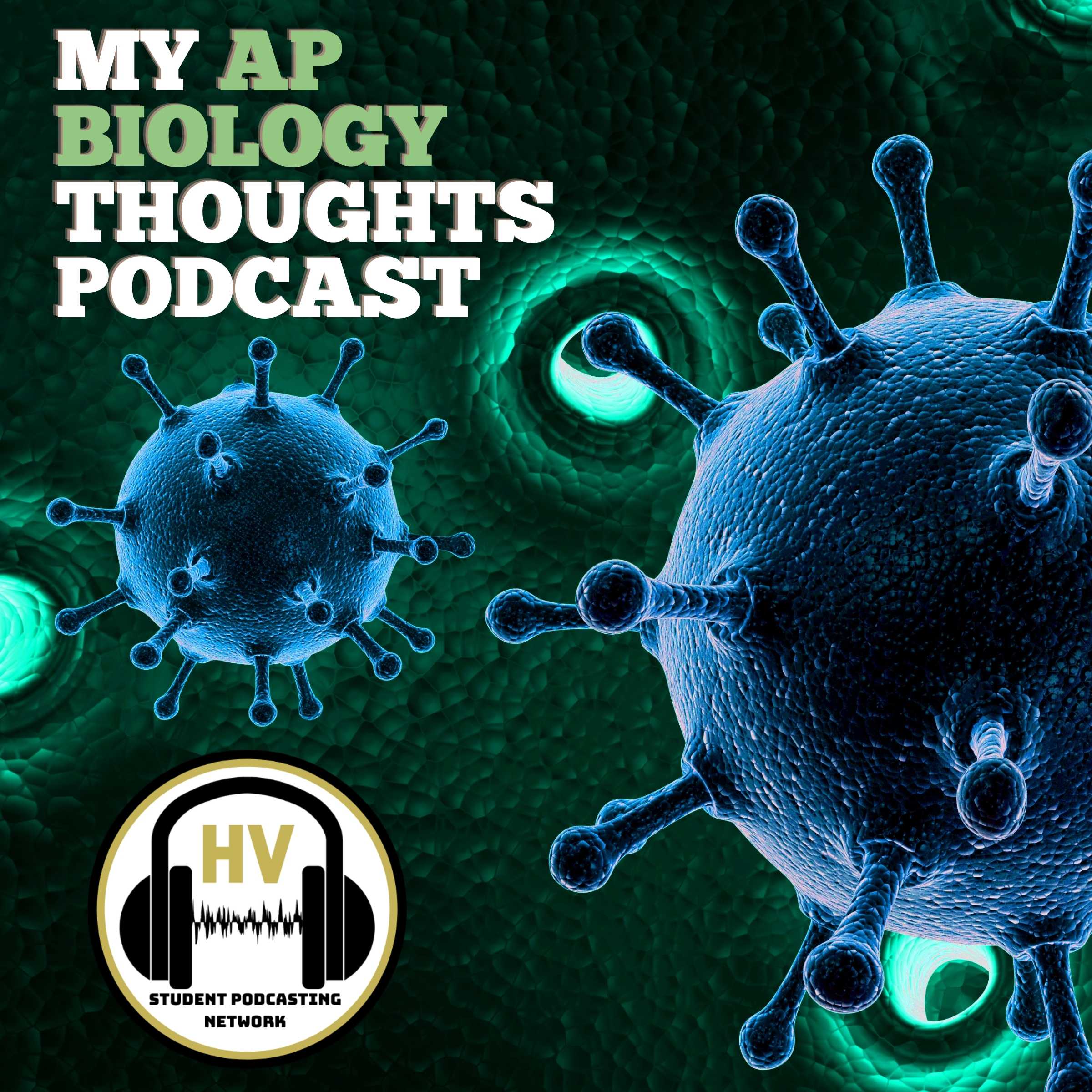Meiosis
Description
My AP Biology Thoughts Unit 5 HeredityWelcome to My AP Biology Thoughts podcast, my name is Nidhi and I am your host for episode # 97 called Unit 5 Heredity: Meiosis. Today we will be discussing what meiosis is, why it's important, and how it connects to other topics we’ve learned about this year.
Segment 1: Introduction to why Meiosis is important From what we have learned this year, we know Mitosis is used to prudence daughter cells that are genetically identical to a parent cell. On the other hand, the function of meiosis is to produce gametes. The daughter cells have half as many chromosomes as the parent. To put it in other words, a diploid cell is the parent to 4 haploid cells. In humans, the haploid cells produced are sperm and egg cells, essential for reproduction to occur. It imporant that meiosis occurs to produce sex cells and not mitosis because the combiation of 2 cells both with the nomral number of chromosomes during fertiliztion would result in an offspring wth double the normal number of chromosomes. Meiosis also created 4 unique haploid cells unlike mitosis which creates identical daughter cells. Meiosis creates new combinations of genetic material in each of the four daughter cells. The gametes produced through meiosis exhibit a larger range of genetic variation and this allows for genetic variation in a population. This genetic variation is increased even more when the two gametes unite during sexual reproduction. This overall helps to increase diversity in a population which increases the chances of the population surviving in a changing environment. Another difference between Meiosis and Mitosis is that Meiosis involves two rounds of nuclear division. The other events of Meiosis are pretty similar to Mitosis but there are some key differences.
Segment 2: More About what meiosis is To begin, a cell will first go through interphase where the cell grows during the G_1 phase, replicates its DNA during the S phase, and prepares for division during the G_2 phase. Then the cell enters Meiosis 1. It begins in prophase 1 where the chromosomes begin to condense. Unlike mitosis, the condensed chromosomes begin to pair up with their homologous partner. The DNA is then broken at the same spot on each chromosome and the homologous chromosomes exchange part of their DNA in a process called crossing over. This process of crossing over increases genetic variation producing unique chromosomes. After crossing over, the spindle fibers capture the chromosomes and move them towards the center of the cell. THis is similar to how the chromosomes in mitosis are moved by spindle fibers, but in meiosis, homologous pairs—not individual chromosomes—line up at the metaphase plate for separation. The orientation of each pair is random and this allows for the formation of gametes with different sets of chromosomes. In anaphase I, the homologues are pulled apart and move apart to opposite ends of the cell. The sister chromatids of each chromosome, however, remain attached to one another and don't come apart. Finally, in telophase I, the chromosomes arrive at opposite poles of the cell and cytokinesis occurs separating the two haploid daughter cells. After meiosis one, the cell does not re enter interphase to grow like it did before meiosis 1. The daughter cells produced by meiosis 1 enter meiosis 2. These cells are haploid but their chromosomes still consist of two sister chromatids. In meiosis II, the sister chromatids separate, making haploid cells with non-duplicated chromosomes. As part of prophase II, chromosomes condense and the nuclear envelope, if it was present, breaks down. The spindle forms between the speratedd centrosomes, and the spindle microtubules begin to capture chromosomes. The two sister chromatids of each chromosome are captured by fibers from opposite spindle poles. In metaphase II, the chromosomes line up individually along the metaphase plate. In anaphase II, the sister chromatids separate and are...
More Episodes
Published 06/08/23
Published 06/08/23
My AP Biology Thoughts Unit 8 Ecology EPISODE TITLE: Birds of Paradise Mating RitualsWelcome to My AP Biology Thoughts podcast, my name is Xavier and I am with Celine and Sofie and we are your hosts for Unit 8 Ecology-Birds of Paradise Mating Rituals. Today we will be discussing Birds of...
Published 12/21/21


